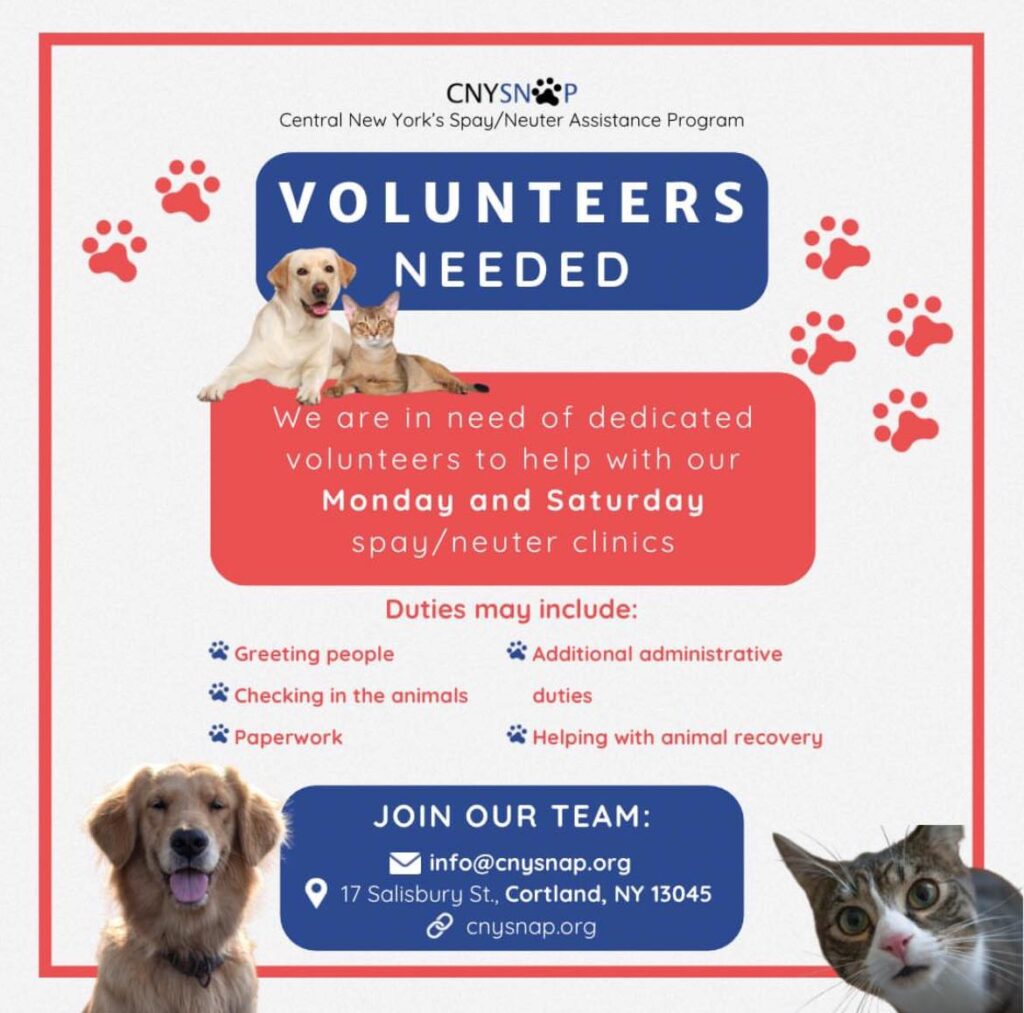Weekly spay/neuter clinics for cats and dogs are offered on Mondays and Saturdays at CNY SNAP in Cortland, NY, and require an appointment.
How to make an appointment
Please call (607) 756-2561 and leave a message with your name, telephone number, and requested service. If the voicemail is full, try again later in the week. We receive dozens of calls a day. Please speak clearly.
You’ll receive a return call once an appointment becomes available. Due to extremely high demand, the wait for an appointment can be several months.
Spay/neuter clinic services & pricing
We accept cash or check payment only. The cost per animal (subject to change) at our spay/neuter clinic includes:
- Dog:
- Female dog spay — $110
- Male dog neuter — $90
- Dogs over 100 lbs. will incur an additional fee
- Cat:
- Female cat spay — $80
- Male cat neuter — $60
- Rabies vaccine — $10
- Distemper vaccine — $10
- Flea treatment — $4
- Ear mite treatment — $4
- Microchip — $10 each
- Other necessary services may incur an additional charge, such as de-worming, eye medication or antibiotics, etc.
Our partner
We partner with SOS (Shelter Outreach Services), an organization that provides veterinary resources to companion animals in need. SOS offers additional spay/neuter clinics at other locations throughout the Finger Lakes.

The importance of spaying/neutering your pet
With humane societies and shelters overwhelmed with homeless and abandoned animals, spaying and neutering your pets is an important way in which you can become part of the solution to the overpopulation problem.
Benefits of having your pet spayed/neutered:
- It reduces population of unwanted cats and dogs.
- Territorial marking in the house, if it occurs, is reduced by half.
- Episodes of aggression towards other cats/dogs should cease.
- Roaming (running away from home) is reduced in about 90% of cases.
The health effect of having your pet spayed/neutered are quite significant as well:
- Spaying eliminates heat cycles in females and ensures that the problems associated with heat cycles are avoided.
- With neutering, many prostatic diseases are greatly reduced, as is the risk of prostatic cancer.
